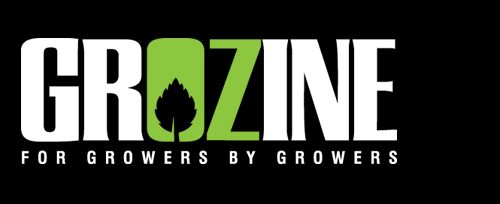
Hydroponics STEM program fosters crop of young gardeners, scientists
Hydroponics STEM Program | Lina Tran |
IMAGE: Mitchelle Lyle tends to plants growing in a hydroponics unit at her home.
A new crop of gardeners is growing in Milwaukee. The hydroponics STEM program introduces high schoolers to agriculture, nutrition and careers in science. It started out focused on Milwaukee’s Amani neighborhood, where residents often have limited access to grocery stores with fresh produce. After its first year, the program is now growing to a second classroom in Muskego Way.
Amani native Mitchelle Lyle, recently recognized through the African American Environmental Pioneer Awards, spent the last decade working as an engineer before returning home to start the program. I spoke with Lyle as she was getting ready to recruit interested students for the next class. Applications for the program are open now.
How did this program get started? Tell me about how you got into this.
So I moved back to Milwaukee in 2018. Moving back to my childhood home, where we are now, I wanted to make sure that I was giving back to my community. I’m the youngest of my siblings. So once I moved away to college and out of state for work, no one was here, everybody moved on to their lives.
When I moved back, I wanted to bring more of that life back into the house, like with my siblings, with my nieces and nephews. I didn’t want, you know, a lot of my experience to just kind of be taken as what they call the “brain drain” of Milwaukee. So I started gardening. I’ve always known that this area was a food insecure zone, just by living here, right? Like I always need to drive so far to the grocery store, especially one that has organic produce, or even restaurants aren’t very close. So when I was thinking about what’s one of the best ways that I could give back or one of the biggest needs, it was absolutely food in some capacity.
You mentioned that you started gardening. Were you just doing that out of your own personal interest before it became the program?
I grew up with gardening, it was just always a part of life. My grandparents garden, my aunts, even my older sister. It was just something that you did, it didn’t seem like an odd thing. I have fond memories around, you know, being able to go and pick my own tomatoes or cucumbers as a snack, or helping my aunt pick a zucchini so she can make zucchini bread for us. When I came of age, and was out on my own, I just always made a small plot for myself whether it was just herbs or, you know, small fruit, tomatoes and cucumbers and things.
So you knew that you wanted to come back home and focus on food insecurity. And you already had this past interest in gardening. How did you connect the dots to get to hydroponics?
I realized we’ve always kind of done hydroponics. With just like herbs and things, putting it in a cup and letting that grow or an onion that started to sprout. We would put that in water and allow the sprouts to come up as well.
Yeah, I love that. It’s like you get two plants for one.
Exactly. So I won [a hydroponics unit] in a raffle at the Dominican Center. I got the unit and I was like, oh, this is cool. I’m gonna see how this works. I unboxed it and was really thinking to myself, this has a lot of mechanics to it. It’s really interesting how I need to schedule my LED, for example, to replicate sunlight or the aggregation of the water is really like how the beetles and worms turn over our soil. I just found that really interesting.
It’s so much science that I think we know and recognize, but don’t really pay attention to because it’s not being presented as science. So I started to think about a program with another friend of mine, who has the Beyond STEM program, but she works with middle school students. I was like, “How about we do an agricultural engineering curriculum around it?” That’s really what made me think this should be a STEM education program. That’s when I started to build the curriculum and work with other partners.
The National Society of Black Engineers took me on as a partner. So this really helped us connect with our high school students from a pipeline perspective to get them interested in STEM, and moving them through different disciplines of engineering. And then working with the Dominican Center, because they’re a great staple in the Amani neighborhood, and really focusing on the holistic neighbor. The Milwaukee Food Council really helped with me being able to buy the materials and everything for the students so that they can have a successful first year of the program.
Original Article: https://www.wuwm.com/environment/2024-04-11/hydroponics-stem-program-fosters-crop-of-young-gardeners-scientists
